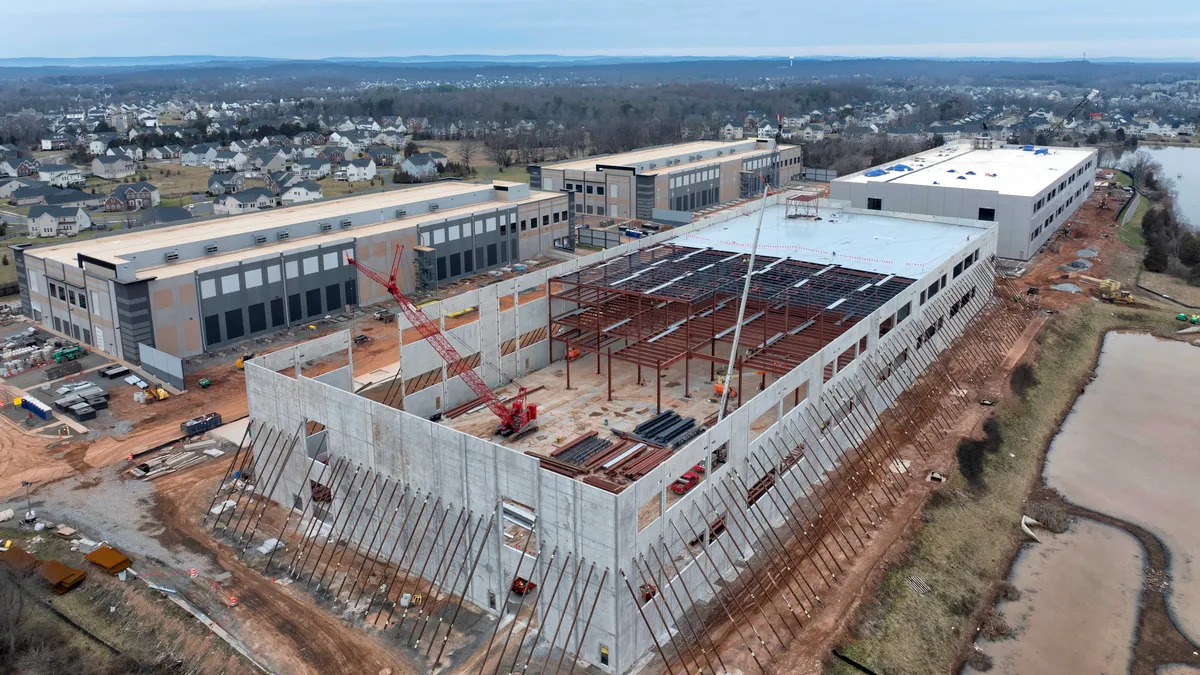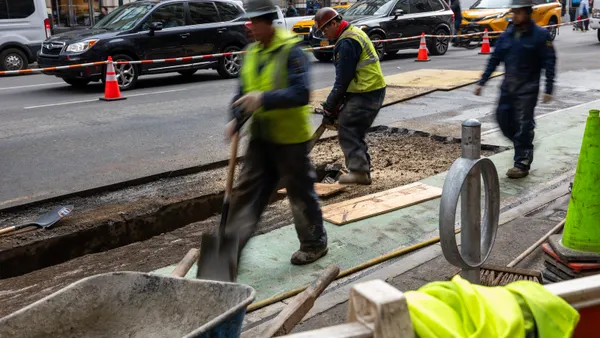Dive Brief:
- The American Institute of Architects issued a statement Thursday opposing the Trump administration's decision to revoke the nation's status as signatory to a global greenhouse gas-mitigation initiative — the 2015 Paris Agreement, which is part of the United Nations Framework Convention on Climate Change.
- The organization also reaffirmed its commitment to climate change mitigation and said that it would continue to advocate for energy conservation and the use of renewable resources in the construction and design industries.
- Trump said the U.S. would begin negotiations for a new accord, which, according to Utility Dive, implies the U.S. will stay in the underlying treaty, the United Nations Framework Convention on Climate Change.
Dive Insight:
Ahead of the COP21 International Climate talks, more than 50 construction-related companies — including Skanska, Autodesk and Thornton Tomasetti — signed the Building and Real Estate Climate Declaration. The declaration highlighted the relationship between climate change and the built environment — which accounts for 39% of carbon emissions in the U.S. each year — as well as the potential economic benefit of working to combat climate change.
The AIA has also taken up the cause of climate change through its 2030 Commitment, which has the primary goal that all new construction and major renovations will be carbon neutral by 2030.
In an October 2016 update on the 2030 Commitment, the AIA said the building industry has not kept up with the initiative's energy-reduction objectives. Only 4% of projects at the time of the announcement had met the 2015 building performance target of 70% energy savings. Most buildings that reached the target, the AIA said, saw average savings of 38%. The organization said that one of the reasons signatory design firms have failed to keep up with the 2030 goals is because only six out of 10 utilize energy modeling early enough in the design process.
On a positive note, however, the AIA said that the program so far had prevented 21 million metric tons of greenhouse gas emissions. The AIA also reported that the number of firms submitting project data for the AIA 2030 program had increased from 2014.
As part of its advocacy efforts, the AIA was among 600 other businesses to come out against the fossil fuel industry's attempts at repealing Section 433 of the Energy Independence and Security Act, which phases out the use of fossil fuels in federal buildings. Aside from the climate change aspects, proponents of the act argue that high-efficiency buildings incur fewer operational costs and can save taxpayers millions of dollars.













